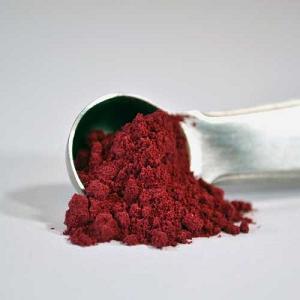
More evidence that low-calorie sweeteners are bad for your health
Studies show that artificial sweeteners can raise the risk of hypertension, metabolic syndrome, type 2 diabetes and heart disease, including stroke.

Natural Health News — A recent study supports previous findings that suggest red yeast rice may lower cholesterol.
Red yeast rice is the product of yeast (Monascus purpureus) grown on rice, and is served as a dietary staple in some Asian countries. It contains several compounds collectively known as monacolins, substances known to inhibit cholesterol synthesis. One of these, “monacolin K,” is a potent inhibitor of HMG-CoA reductase, and is marketed as a conventional cholesterol medicine drug known as mevinolin, lovastatin or Mevacor)
Since the 1970s, human studies have reported that red yeast lowers blood levels of total cholesterol, low-density lipoprotein (LDL or “bad cholesterol”), and triglyceride levels. Products containing red yeast rice extract can still be purchased, mostly over the Internet. However, these products may not be standardized and effects are not predictable. For lowering cholesterol, there is better evidence for using prescription drugs such as lovastatin.
In a recent study, researchers randomly assigned 52 physicians and their spouses with total cholesterol levels over 200 milligrams per deciliter to received red yeast rice extract or placebo for eight weeks.
The researchers found that LDL cholesterol and total cholesterol levels significantly decreased in participants taking red yeast rice when compared to those in the placebo group, with 22% and 15% reductions in LDL and total cholesterol, respectively.
In addition, red yeast rice supplementation in five of the participants resulted in lower cardiovascular risk according to the Systematic Coronary Risk Evaluation. Cholesterol reductions were lacking in the placbo group.
The authors of the article published in BMC Alternative and Complimentary Medicine concluded that red yeast rice may be an effective alternative treatment for high cholesterol for people who are unable to tolerate prescription drugs. However, the authors cautioned that the actual content of commercially available red yeast rice supplements may not be assured due to a lack of government regulations on natural products.
In addition to red yeast rice, many other integrative therapies have been studied for their potential to reduce cholesterol. Many studies have looked at the effects of beta-glucan on cholesterol. Small reductions in levels of total cholesterol and LDL cholesterol have been reported. Few significant changes have been found in levels of triglycerides and high-density lipoprotein (HDL or “good”) cholesterol.
Additionally, multiple studies in humans have reported small reductions in total blood cholesterol and LDL cholesterol over short periods of time after garlic use.

Please subscribe me to your newsletter mailing list. I have read the
privacy statement